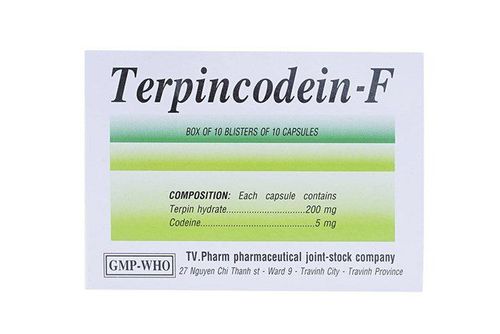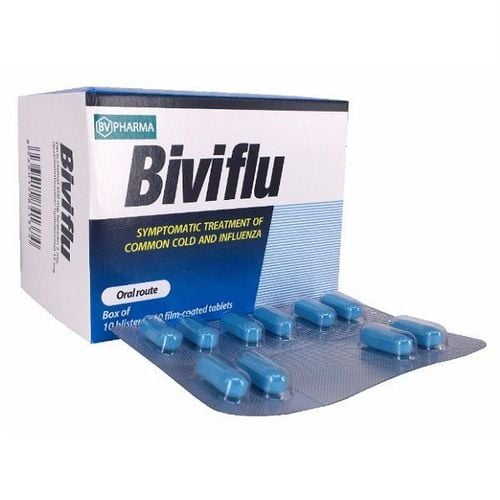This is an automatically translated article.
Medirubi is a medicine that acts on the respiratory tract to help fight cough caused by irritated throat and bronchi. What are the uses of Medirubi? Please refer to the article below for more useful information.
1. What is Medirubi cough medicine?
Drugs manufactured by Me Di Sun Pharmaceutical Joint Stock Company circulated in Vietnam and registered with VDK-24223-16. Medirubi drug ingredients include:
Dextromethorphan hydrobromide 15 mg: This is a cough suppressant that acts on the cough center in the medulla oblongata, most effective in the treatment of chronic cough without phlegm. The drug is often used in combination with many other substances in the treatment of symptoms of the upper respiratory tract. The drug has no expectorant effect. Guaifenesin 100 mg: This is an expectorant, helps to remove mucus from the respiratory tract due to expectoration, it also lubricates irritated airways. Other active ingredients are just enough in 1 Medirubi tablet.
2. Uses of cough medicine Medirubi
Medirubi cough medicine has the effect of treating cough. The potency of dextromethorphan is roughly equivalent to that of codeine. Compared with codeine, dextromethorphan is less likely to cause gastrointestinal side effects. With therapeutic doses, the antitussive effect of the drug lasts for 5-6 hours. Low toxicity, but at very high doses can cause CNS depression. Throat & Bronchial Cough is irritated by the common cold or by inhaling irritants. Cough without phlegm, chronic. Temporarily relieves runny nose, nasal mucus, nasal congestion due to colds, bronchitis or laryngitis. On the other hand, if the patient falls into the following cases, they will not be prescribed prescription cough medicine Medirubi
Hypersensitivity to drug ingredients. Using MAO. Children under 2 years old.
3. Dosage, instructions for using Medirubi
Dosing regulations are usually intended to guide adult audiences for oral administration. Dosage for other routes is specified in the leaflet. Do not change the dose on your own without consulting your doctor or pharmacist. It is best to consult a doctor before using the drug.
For adults and children over 12 years old: 30mg/time every 6-8 hours, maximum 120mg/24 hours. Children from 6-12 years old: 15mg/time, every 6-8 hours, up to 60mg/24 hours. Children from 2-6 years old: 7.5mg/time, every 6-8 hours, up to 30mg/24 hours. Note, if you forget to take a dose, take it as soon as possible. However, if it is almost time for your next dose, skip the missed dose and take your next dose at the scheduled time. Do not take double the prescribed dose.
4. Side effects when using Medirubi
Using Medirubi can cause some unwanted side effects, common symptoms include:
Fatigue, dizziness, Tachycardia, nausea, bronchospasm, skin allergies. Causes drowsiness, digestive disorders.
5. Notes when using Medirubi
For pregnant women, avoid frequent use (risk of withdrawal symptoms in infants). The drugs have been used in many breastfeeding women without an increase in adverse effects on the infant. Controlled studies in lactating women have not demonstrated a risk to the infant and a low likelihood of harm to the nursing infant or the preparation has no oral bioavailability to the infant.
Please dial HOTLINE for more information or register for an appointment HERE. Download MyVinmec app to make appointments faster and to manage your bookings easily.













